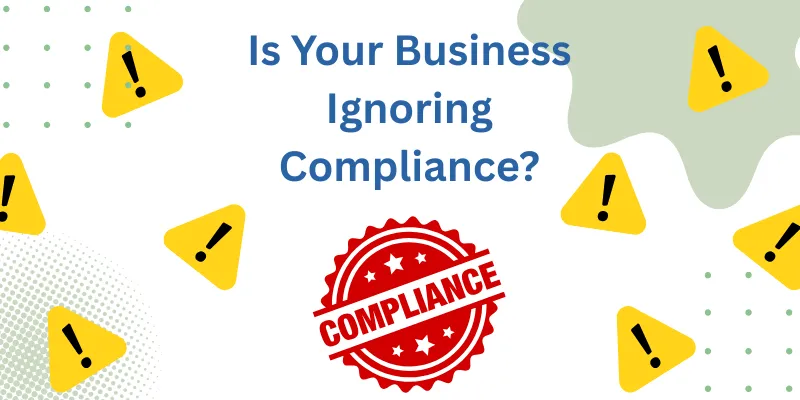
The Compliance Blind Spot That Could Be Bleeding Your Business Dry
A lot of small business owners still believe compliance is just something for big corporations with legal teams and six-figure audit budgets. That myth is costing people more than just money—it's costing trust, contracts, and in some cases, their entire business.
Here’s the reality: in 2025, compliance isn’t optional. It’s a non-negotiable part of doing business—and the rules are getting tighter, especially for small and midsize companies.
At qnectU, we work with business owners who never thought they'd be in the compliance crosshairs until they got hit with a fine, a breach, or an angry client who walked away after discovering a gap in data protection. We’re here to make sure that doesn’t happen to you.
Why Compliance Is No Longer Just a Big Business Problem
Regulators like HHS, PCI SSC, and the FTC are cracking down on small businesses—and they're not holding back. Here’s why:
Data is everywhere. Even a two-person office stores sensitive info: credit cards, health records, and financials.
Cyber threats are rising. And enforcement agencies know smaller businesses are often the softest targets.
Fines are scaling. Regulators now have more power—and budget—to enforce penalties.
We’re seeing real-world cases of small clinics, retailers, and service businesses being fined hundreds of thousands of dollars for things they didn’t even know were required.
Let’s Break Down the Rules You Can’t Afford to Ignore
1. HIPAA (for any business handling health-related data)
Encryption of electronic PHI is now mandatory.
You must conduct risk assessments and document the process (this is where most people fail).
Your team needs real-world training, not just a handbook.
You need a written, tested response plan for a data breach.
💡 In 2024, a small healthcare provider was fined $1.5 million for failing to encrypt patient data.
2. PCI DSS (if you accept credit cards)
Cardholder data must be encrypted and stored securely.
Firewalls and access controls are no longer optional.
You need regular network monitoring and security testing.
💡 Noncompliance can cost $5,000–$100,000 per month of non-compliance.
3. FTC Safeguards Rule (if you handle consumer financial info)
You need a written security plan—and a qualified individual overseeing it.
MFA is required.
Risk assessments and employee access controls are essential.
💡 Fines can reach $100,000 per incident—and start at $10,000 personally for responsible staff. This is also the first rule that includes jail time.
This Isn’t a Warning—It’s a Wake-Up Call
We recently saw a small medical office lose $250K in fines and most of their clients after a ransomware attack exposed patient info. Their mistake? Outdated software, no formal risk assessments, and no incident response plan. They assumed their cyber insurance would cover it. It didn’t—because they failed to meet the basic technical safeguards required by regulators.
This story isn’t unique. In fact, it’s becoming alarmingly common.
We’ve seen retail shops hit with surprise PCI audits, professional services firms fined for mishandling sensitive client data, and local contractors suddenly required to meet FTC standards because of one new subcontract.
This isn’t about checking a box. It’s about protecting what you’ve worked so hard to build—and doing it in a way that won’t cripple your operations or create unnecessary complexity.
Compliance is the foundation for security, trust, and resilience. And in today’s environment, it’s also a competitive advantage. Businesses that can demonstrate their compliance posture are winning contracts, retaining clients longer, and avoiding costly disruptions when things go sideways.
How To Get Ahead of Compliance (Before It Becomes a Crisis)
🔍 Run a Risk Assessment – Identify your vulnerabilities and document them. That’s step one in almost every regulation.
🔐 Update Your Security Stack – Use MFA, encryption, endpoint protection, and regular backups.
👥 Train Your Team – Cybersecurity awareness isn’t a one-time video or training. Your team needs to fully understand what’s at stake. Continuous training is the only effective way to ensure understanding.
📄 Create an Incident Response Plan – Know what to do when (not if) a breach occurs.
🤝 Work With a Compliance Partner – You don’t have to do this alone. And honestly? You shouldn’t.
Your Next Step
Compliance doesn’t have to be overwhelming—but it does have to be taken seriously. Don’t let what you don’t know become the reason you lose everything you’ve built.
That’s why we offer a FREE Compliance & Cyber Risk Assessment—designed specifically for small and midsize business owners who want to stay protected, competitive, and in control.
📅 Click here to schedule a quick 26-minute call for your FREE assessment today.
qnectU | Strategy-First IT. Compliance-Smart. Growth-Focused.
